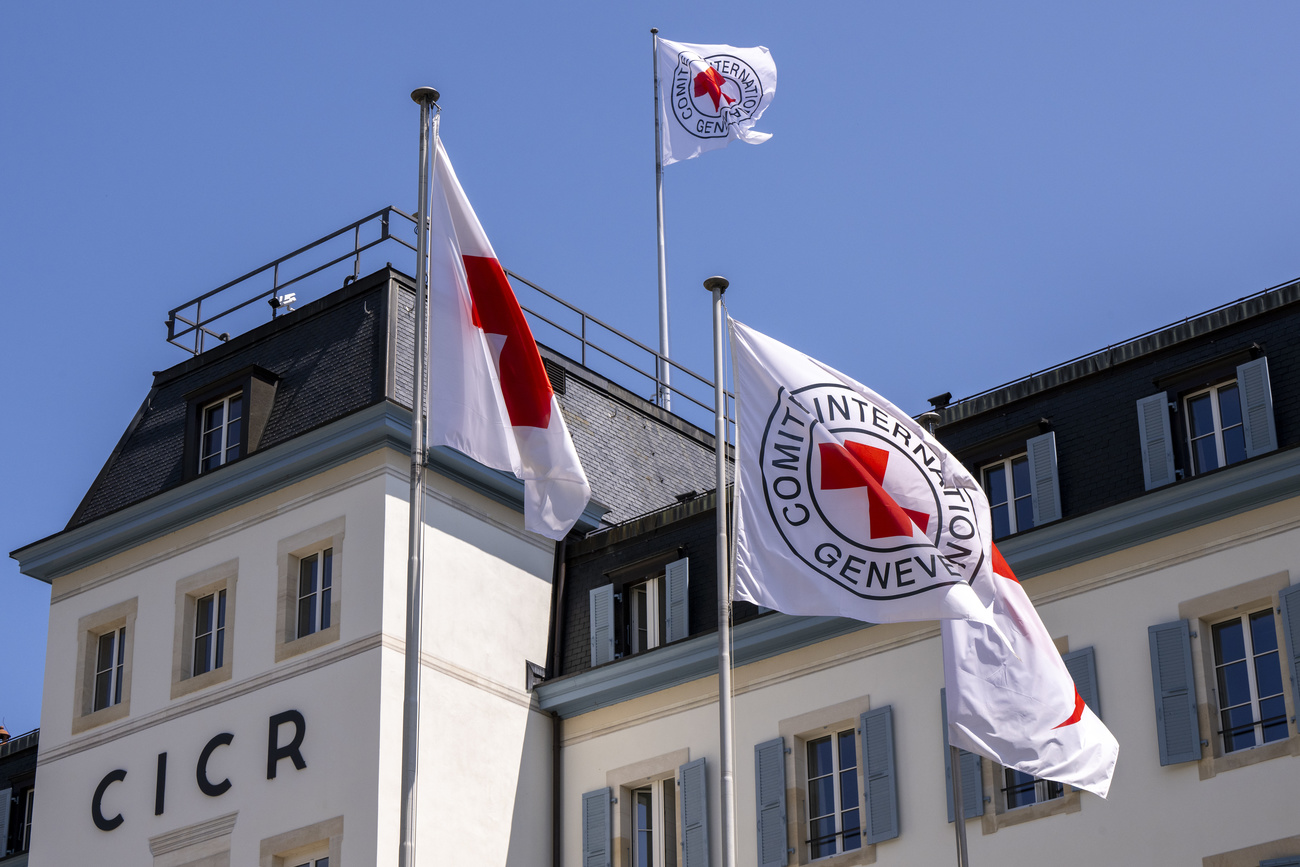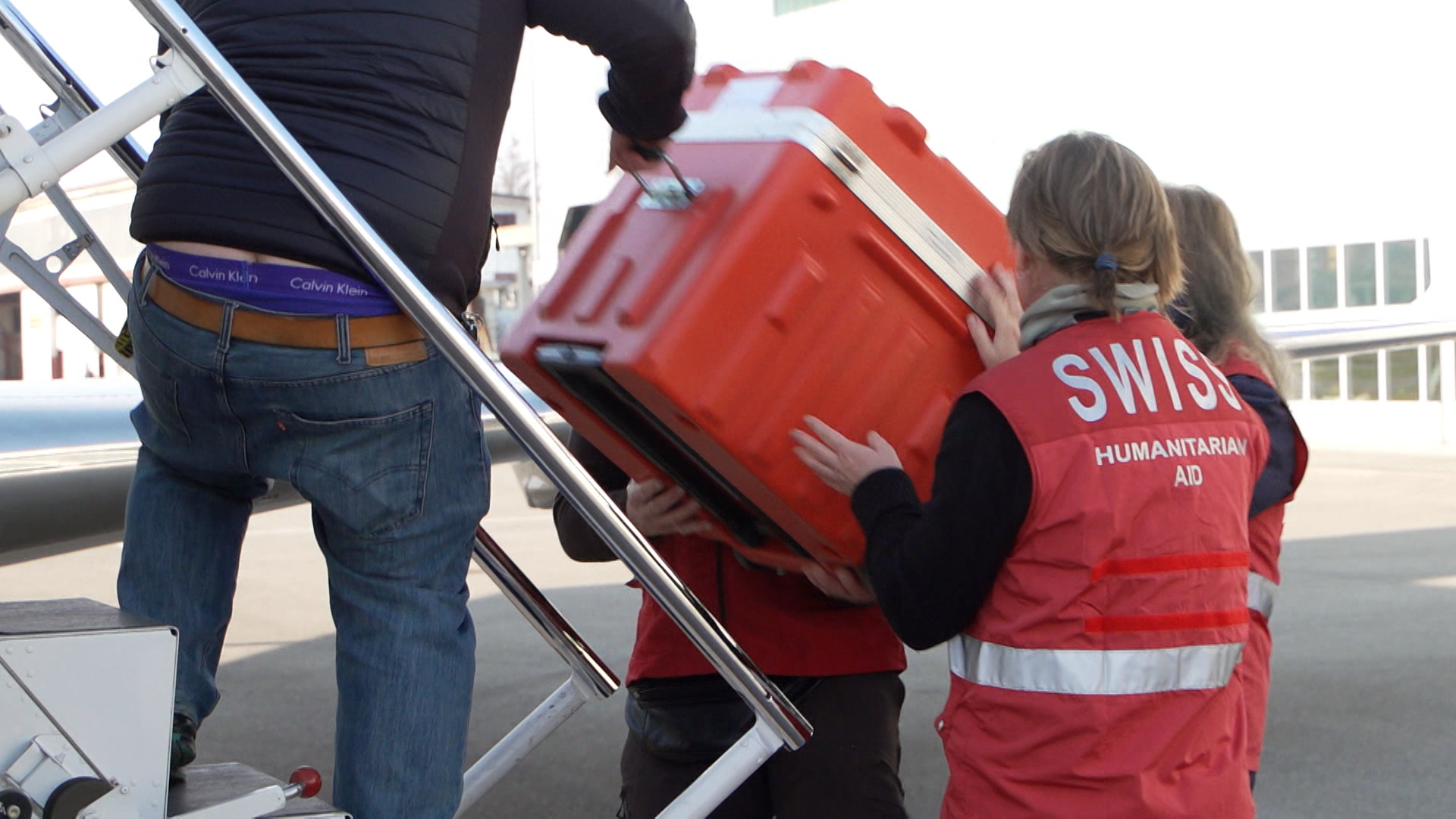
No immediate US threat to ICRC funding

United States funding of the International Committee of the Red Cross (ICRC) is not under immediate threat, according to its director Pierre Krähenbühl.
+ Get the most important news from Switzerland in your inbox
However, the ICRC has taken preventive measures, including a hiring freeze.
The ICRC obtains US funding not through the US Agency for International Development (USAID), which has been hit hard by US President Donald Trump’s cost-cutting measures, but through the US State Department, Krähenbühl told Le Temps. “Historically, we have always enjoyed bipartisan support, Democrat and Republican”.
+ Foreign aid cuts: where does Switzerland stand?
“But we don’t yet know what the current administration’s intentions are for the future,” added the ICRC director. “The impact on our organisation of the loss of the American contribution would be significant”, as it represents 25% of the NGO’s budget.
CHF50 million frozen
Even though no funding has been cut, the ICRC has taken “preventive measures to the tune of CHF50 million”, in particular by freezing new recruitments planned in the budget, said Krähenbühl. The organisation is also conducting a dialogue with the US authorities “focused on the real added value” of the organisation in armed conflicts.

More
Red Cross in black after ‘drastic’ cuts
The ICRC has also responded to the US government’s questionnaire aimed at defining the relevance of its activities and the continuity of its funding. “Our primary objective is to protect civilians in war and the defence of humanitarian law”, said Krähenbühl.
He points out that the US is not the only country to have made financial cuts. “Several European states are doing the same” to “prioritise national defence issues and rearm, reducing their support for humanitarian aid”.

More
The consequences of cuts to Swiss foreign aid
The ICRC has already suffered a “very severe crisis” over the past two years, says Krähenbühl, pointing out that the budget has been cut by CHF700 million to CHF2.1 billion.
What is your opinion? Join the debate:
Translated from French with DeepL/mga
How we work
We select the most relevant news for an international audience and use automatic translation tools such as DeepL to translate them into English. A journalist then briefly reviews the translation for clarity and accuracy before publication. Providing you with automatically translated news gives us the time to write more in-depth articles. The news stories we select have been written and carefully fact-checked by an external editorial team.
Did you find this explanation helpful? Please fill out the short survey on this page to help us understand your needs.

In compliance with the JTI standards
More: SWI swissinfo.ch certified by the Journalism Trust Initiative




























You can find an overview of ongoing debates with our journalists here . Please join us!
If you want to start a conversation about a topic raised in this article or want to report factual errors, email us at english@swissinfo.ch.